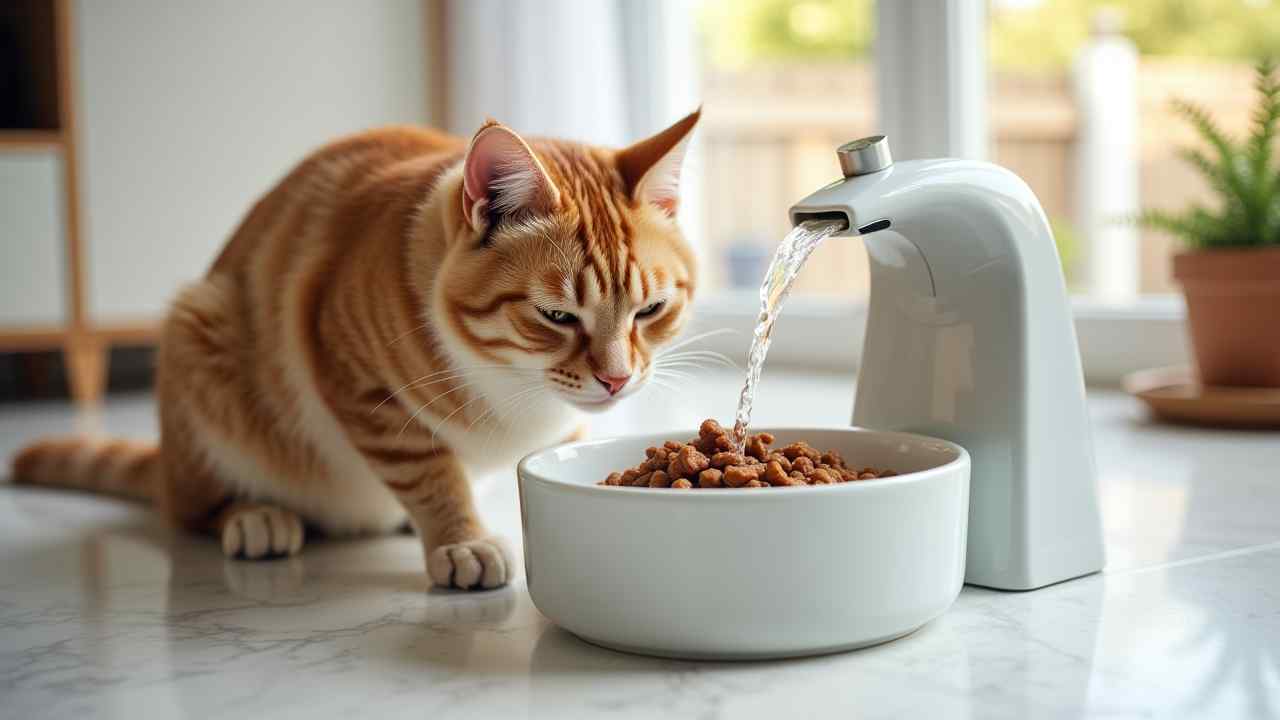
🐾 A Vet's Guide: The Best Cat Diet for Urinary Tract Health
🐾 A Vet's Guide: The Best Cat Diet for Urinary Tract Health 🐾
❗ URGENT VETERINARY WARNING: Urinary issues in cats can be a life-threatening emergency. If your cat is straining to urinate, vocalizing in pain in the litter box, or not producing urine, see a veterinarian immediately. This is especially critical for male cats.
Feline lower urinary tract disease (FLUTD) is very common. It can cause pain and discomfort for your cat. The right diet is the single most important factor. It is the cornerstone of both prevention and management.
This guide will explain the key dietary principles. We will discuss what makes a good cat diet for urinary tract health. Let's explore how you can help your feline friend. Your vet should always be your primary partner in this. 🩺
💧 Why is Water the Most Important Nutrient for Urinary Health?
The number one goal is to keep your cat's urine dilute. Concentrated urine is a major problem. It allows minerals to clump together. This forms painful crystals and bladder stones.
Dilute urine helps flush out the bladder regularly. This prevents minerals from settling and forming crystals. Therefore, increasing your cat's water intake is the most effective strategy. This is the main focus of a urinary-friendly diet.
Is Wet Food Better Than Dry Food?
Yes, absolutely. This is the most crucial change you can make. Dry kibble has a very low moisture content, around 10%. Canned or wet food, however, is about 75% water. This difference is enormous.
Switching to a wet food diet ensures your cat gets constant hydration through its meals. This simple change does more for urinary health than anything else. It is the foundation of a good cat diet for urinary tract health.
How Can You Encourage Your Cat to Drink More?
Cats are notoriously poor drinkers. You can encourage them by using a pet water fountain. The moving water is more appealing. You can also provide multiple wide, shallow bowls of fresh water. Adding extra water to their wet food also helps.
🥣 What Are Prescription Veterinary Urinary Diets?
If your cat has active urinary issues, your vet will likely prescribe a special diet. These are therapeutic diets. They are formulated to treat and prevent urinary problems. They are only available through a veterinarian.
How Do These Diets Work?
These diets are precisely formulated. They control the levels of minerals like magnesium and phosphorus. They are also designed to alter the urine pH. This makes the environment in the bladder less favorable for crystal formation.
Some of these diets can even dissolve existing struvite crystals. This can prevent the need for surgery. They are a powerful medical tool for managing a cat diet for urinary tract health.
What Are Some Common Brands?
You may recognize some of these names. Popular prescription diets include Hill's Prescription Diet c/d, Royal Canin Urinary SO, and Purina Pro Plan UR. Your vet will choose the right one for your cat's specific condition.
✅ What Should You Look for in an Over-the-Counter (OTC) Diet?
Many pet stores sell "urinary health" formulas. These are for maintenance and prevention only. They are not for cats with a current medical issue. If you choose an OTC diet, you must know what to look for.
The most important feature is high moisture. Choose a wet food, not a dry kibble. The formula should also be based on high-quality animal protein. It should be low in carbohydrates and fillers like corn and wheat.
Be wary of marketing claims on the bag. A "urinary health" kibble is still dry food. The best thing you can do is to switch to almost any high-quality wet food. The moisture content is what matters most.
⭐ How Do You Create the Best Cat Diet for Urinary Tract Health?
Building the perfect diet is a partnership with your vet. It involves a few clear, actionable steps. A proactive approach is the best way to protect your cat from painful urinary problems.
First, always consult your veterinarian. They can rule out or diagnose any medical issues. Second, prioritize moisture by switching to a wet food diet. This is the single most effective step you can take.
If your vet prescribes a therapeutic diet, follow their instructions exactly. Finally, encourage hydration with fresh water sources. A proper cat diet for urinary tract health and a low-stress environment are the keys to a happy, healthy cat. 🐾